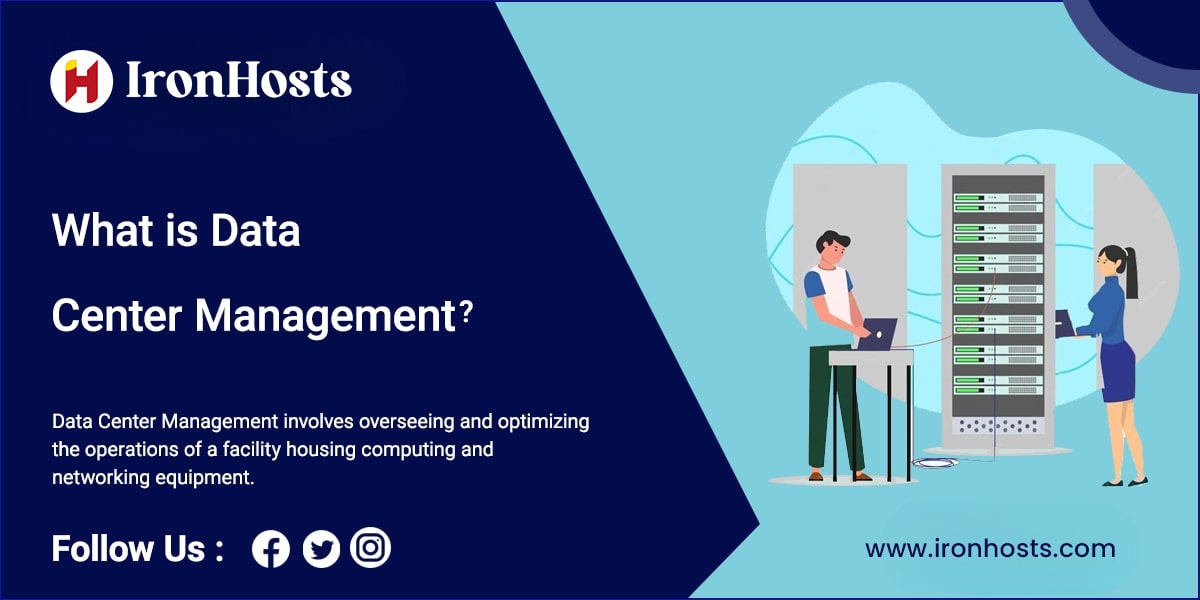Data centers are complex facilities that house computing infrastructure like servers, storage, networking equipment, and more.
Effective data center management is crucial for organizations that rely on data center operations for business-critical applications and services.
Data center management refers to the people, processes, and technologies involved in operating, monitoring, and optimizing data center environments.
Importance of Data Center Management
With the growth of cloud computing, internet usage, and big data, organizations increasingly depend on always-on connectivity and information systems. Any disruption to data center operations can result in significant financial losses, operational inefficiencies, and reputational damage. As such, solid data center management practices are essential for:
- Maximizing data center uptime and availability
- Ensuring efficient use of resources like power, cooling, and space
- Meeting service level agreements (SLAs) for performance and reliability
- Managing costs through improved asset utilization and energy efficiency
- Maintaining regulatory and industry compliance
- Enabling scalability to accommodate growth and change
- Reducing the risk of outages through preventive maintenance and monitoring
Data Center Management Responsibilities
Data center management encompasses a wide range of responsibilities including:
Infrastructure Monitoring
Continuously monitoring infrastructure health—such as power usage, temperature, humidification, and air flow to identify anomalies and prevent outages.
Capacity Planning
Analyzing current and projected compute, storage, and network capacity to anticipate and prepare for future growth.
Hardware Maintenance
Routine maintenance, testing, and break-fix support to maintain uptime.
Data Backup and Recovery
Ensuring data is properly backed up and can be rapidly recovered in the event of failures or disasters.
Vendor Management
Managing relationships with vendors that provide data center equipment, software, and managed services.
Regulatory Compliance
Implementing controls, procedures, and audits to adhere to industry regulations.
Staffing
Hiring, training, and organizing qualified personnel to execute data center operations and procedures.
Security Management
Establishing physical access controls and cybersecurity measures to protect infrastructure and data.
Data Center Management Solutions
There are various tools and solutions available to assist with different aspects of data center management:
Data Center Infrastructure Management (DCIM) Software
DCIM software centrally monitors infrastructure and environments. It provides visibility into resource use and health to enable better planning and maintenance. Leading options include NetZoom, Sunbird, and Schneider Electric EcoStruxure IT.
Data Center Facility Management Companies
Outsourced facility management provides on-site resources to handle daily operations – including monitoring, maintenance, and troubleshooting. Top providers include Infotera, CBRE, Jones Lang LaSalle, Siemens, and ABM.
Managed IT Services
Managed service providers (MSPs) offer around-the-clock remote monitoring, and management of IT infrastructure and applications based on SLAs. This can augment lean in-house IT teams. Top MSPs include Rackspace, Datapipe, and Navisite.
Cloud-Managed Data Center Services
Public cloud providers like AWS, Microsoft Azure, and Google Cloud Platform offer comprehensive suites of data center infrastructure management services. These include options for monitoring, security, backup, optimization, and hybrid cloud management.
Key Considerations
Effective data center management requires balancing priorities like cost, performance, risk, and business objectives. Organizations should consider their staffing expertise, budget, compliance needs, and appetite for outsourcing when developing a data center management strategy.
A hybrid approach combining in-house resources and outsourced services often provides the greatest flexibility and cost-efficiency. As infrastructures scale and technologies evolve, organizations must continuously assess and adapt their data center management software practices.

